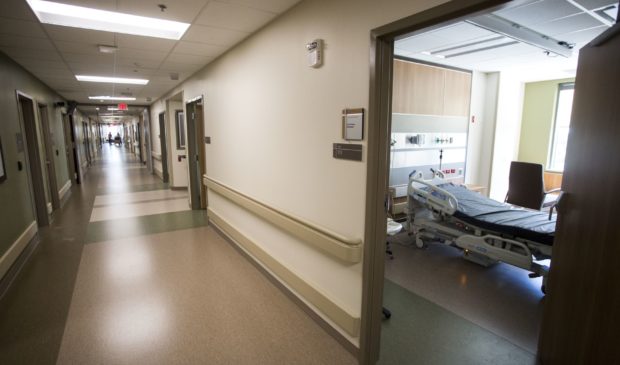Newsletter Signup
The Austin Monitor thanks its sponsors. Become one.
Most Popular Stories
- Council members celebrate unanimous defeat of bill that proposed putting Austin under state control
- A once-banned type of building is back in favor – and the Planning Commission approves
- Audit shows former Austin Water employee directed search of boss’ inbox
- SOS suing state agency over failure to provide information on MoPac expansion
- Austin churches answer prayers for affordable housing – by building it themselves
-
Discover News By District

Photo by Gabriel C. Pérez/KUT
Austin congressman wants to give local governments the ability to expand Medicaid
Tuesday, June 22, 2021 by Ashley Lopez, KUT
Democratic U.S. Rep. Lloyd Doggett of Austin is introducing legislation that would allow local governments in Texas to expand Medicaid to more of their low-income residents.
During this year’s legislative session, Texas lawmakers again refused to expand the program statewide. Texas is one of just a dozen states that have not expanded Medicaid through the Affordable Care Act.
If enacted, Doggett’s COVER Now Act would give cities, counties and taxing districts a way to draw down federal funds to expand health care coverage locally.
“This is really an incentive to demonstrate how (Medicaid expansion) could work,” Doggett told KUT. “In our urban areas, we can cover most of those who are Medicaid eligible. But ultimately, we hope the state will come in and see it works, that it is economically beneficial and certainly beneficial to a healthy workforce.”
Doggett said he hopes to get this measure worked into the U.S. House’s budget reconciliation bill.
During this year’s legislative session in Texas, there were some efforts – including some with bipartisan support – that would have used federal Medicaid dollars to expand health care coverage to more people.
Democratic state Sen. Nathan Johnson from Dallas said his Medicaid expansion bill was written to garner more Republican support – and it worked. He said he was able to get several Republicans to sign on to his bill. However, Johnson said he was “disappointed” that there was no serious consideration given to Medicaid expansion by Republican leaders in the Legislature, who have the power to get a bill heard.
“Ultimately, the political inertia, largely coming from above, was too much,” Johnson said.
Johnson said, if enacted, Doggett’s measure would have the added effect of changing the conversation around Medicaid expansion in Texas, as currently the topic is “buried” under partisan politics in the Legislature.
“If this bill were to become law, that conversation is forced down to the local level where everybody sees it,” he said.
During a press conference in Austin on Monday, Doggett told reporters this was not an effort to shut out states from making decisions on Medicaid. He said he wants to make sure “people who are too poor for the exchanges” created by the Affordable Care Act and also make too much money to qualify for “Texas’ stingy Medicaid program” have a way to get health insurance.
Texans who are too poor to receive subsidies for private insurance on healthcare.gov and yet not poor enough for Texas’ very restrictive Medicaid program fall into what experts call the “Medicaid gap.”
Anne Dunkelberg, who oversees health care policy for Every Texan, a think tank based in Austin, said Texas’ income requirement is so low “that almost no one meets it,” including many people in the working poor population who also have children.
“Texas Medicaid doesn’t cover families,” she said.
Dunkelberg said some estimates show that as many as 2 million Texans could gain health care coverage through Medicaid expansion. About 75 percent of the population that would be eligible are people of color.
Doggett said if just Houston, Dallas and San Antonio were to decide to expand coverage, that would cover about half of the state population that would be eligible.
“I think it’s best decided at the local level,” he said. “Whatever will reach the most people.”
Travis County Commissioner Margaret Gómez said the county passed a resolution years ago supporting Medicaid expansion. She said about 39,000 people in the Austin area who are currently shut out of the health care system would be eligible for coverage if expansion became an option.
“I think it will promote the trust that poor people need to have in our systems and our health systems,” Gómez said.
This story was produced as part of the Austin Monitor’s reporting partnership with KUT.
The Austin Monitor’s work is made possible by donations from the community. Though our reporting covers donors from time to time, we are careful to keep business and editorial efforts separate while maintaining transparency. A complete list of donors is available here, and our code of ethics is explained here.
You're a community leader
And we’re honored you look to us for serious, in-depth news. You know a strong community needs local and dedicated watchdog reporting. We’re here for you and that won’t change. Now will you take the powerful next step and support our nonprofit news organization?







